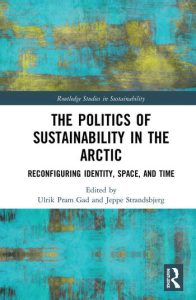The Politics of Sustainability in the Arctic argues that sustainability is a political concept because it defines and shapes competing visions of the future.
In current Arctic affairs, prominent stakeholders agree that development needs to be sustainable, but there is no agreement over what it is that needs to be sustained. In original conservationist discourse, the environment was the sole referent object of sustainability. However, as sustainability discourses have expanded, the concept has been linked to an increasing number of referent objects, such as society, economy, culture, and identity.
This book sets out a theoretical framework for understanding and analysing sustainability as a political concept, and provides a comprehensive empirical investigation of Arctic sustainability discourses.
Presenting a range of case studies from Greenland, Norway, Canada, Russia, Iceland, and Alaska, the authors analyze the concept of sustainability and how actors are employing and contesting this concept in specific regions within the Arctic. In doing so, the book demonstrates how sustainability is being given new meanings in the postcolonial Arctic and what the political implications are.
The authors have succeeded in gathering an interdisciplinary group of scholars that share their insight into the many aspects, understandings, perceptions and applications of the politics of sustainability in the Arctic. The multifaceted approaches and answers to the editors’ key research questions: ‘What is to be sustained?’ ‘In relation to what?’ and ‘How?’ provide valuable reading for the academic community, politicians, indigenous peoples’ organisations as well as other Arctic decision makers and stakeholders.
The essays in “The Politics of Sustainability in the Arctic” also serve as a crucial reminder that probing the reference object of sustainability, an historical gaze and empirical richness are necessary for understanding sustainability politics.
The Politics of Sustainability in the Arctic is a result of a research project that aimed to understand ‘sustainability’ not only as a technical problem to solve a troubled relationship to nature but rather to see sustainability as a political concept that changes the way we can talk about political identities and futures.
… stated the author, Jeppe Strandsbjerg, to SAFETY4SEA
Jeppe Strandsbjerg also highlighted that everybody wants, and talks about, sustainability – but it always means something different to different groups. That is why it is easy to agree on sustainability but very difficult to find a common path.






























































